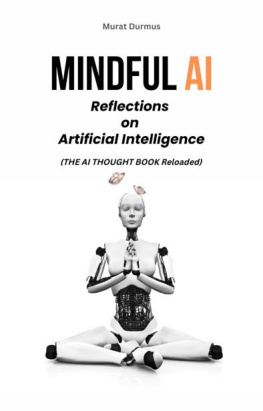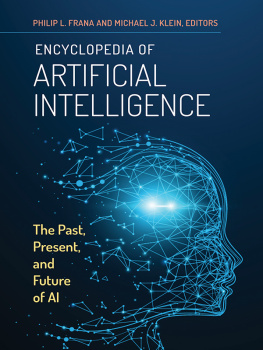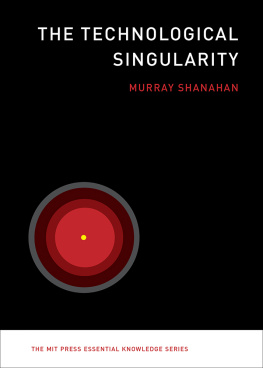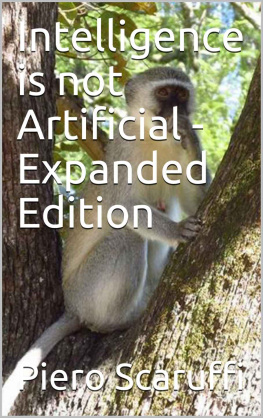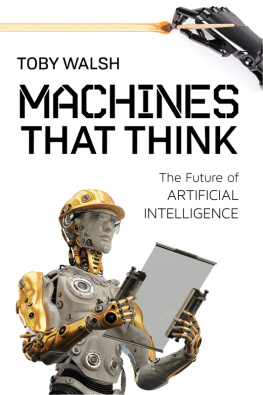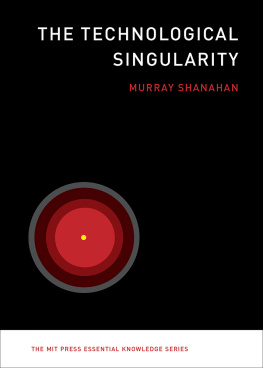Consciousnessa darting firefly in a universe lit by stars.
-G. Freitas
Futurists and thought leaders predict that by 2050 artificial intelligence (AI) will exceed human intelligence and profoundly alter the human experience. The Coming Singularity is an exploration of our evolving interface with technology, and the psychological, social, and political impact machine intelligence will have on all of us in the coming decades.
If there is one overarching theme, it is thisour e-technology interface is modifying our identities, individually and collectively-creating extraordinary demands and expectations that will test the limits of our adaptability. I have termed this transformational process and all its sequela Identity Diffusion.
The many books and articles I have encountered on the topic of Singularity have been generally indifferent to the human struggle, mostly offering bleary panaceas. Not surprisingly, their focus is on technology. Hopefully, this book is a corrective, as I attempt to delve into the impact of the tech-rapture being proselytized by thought influencers, but also examining the challenges and existential threat foretold by apostates of a dystopian future (Bill Gates, Stephen Hawking and Elon Musk).
Introduction: You Are Different
Today and Dont Know It!
The ache of cosmic specialness will be lost.
-E. Becker, The Denial of Death
Big Picture
| Universe | 13.8 billion years |
| Earth | 4.5 billion |
| First life | 3.8 billion |
| First mammals | 200 million |
| First primates | 55 million |
| First apes | 25 million |
| Proto-humans | 5.5 million |
Homo sapiens | 300,000 |
| First civilization | 3,500 |
| Universe | 13.8 billion years |
Last 200 yearselectricity, the telegraph, the incandescent light bulb, internal combustion engine, trains, telephones, movies, automobiles, radio, refrigeration, airplanes, television, vaccines, transistors, nuclear power, satellites, computers, space station, video games, gene sequencing, internet and smartphones.
It is hard not to notice that something in the human experience has dramatically changed in recent years. Everyone is continuously interacting with electronic devicessending out and receiving back electronic signals. A world once indexed by six degrees of separation is now instantaneously connected by one degree of separation.
While everything appears relatively normal day-to-day, we have changed and dont appear to realize it. So, what has changed, you ask? For one, we spend more than 7.5 hours a day interacting with electronic devices (Center for Disease Control). We can buy a home gene editing kit for $349 and have our DNA sequenced for $150. The world is being microchipped and censored into data streams, as we are harvested and scrubbed by data research labs (and hackers) around the world. Everything about us is available online to anyone who wants it badly enoughcorporations, hackers or governments. Overnight, we have become vulnerable and exploited in terms that have significant implications regarding privacy, identity and independence of thought and action.
What remains unanswered is, Why are we all lining up to be electronically connected? And what does it mean to be disconnected? Disconnected, not in a Luddite sense, but out of a failure to be fully involved in the human experience; perhaps unadaptive in an evolutionary sense. E-technology comes to us as convenience, cost-saving, entertainment, information, safety-security, and connectivity. But we almost never ask what it wants from us in return. That is explored here as well.
Perhaps even more disconcerting, there is no opt-out or off-the-grid option. We are all hardwired into this electronic network, whether we like it or not. This is the new normal, and we should all be paying attention. And hold on, its going to be a wild ride. While admission is whatever you can afford, it will require a significant shift in who we think we are. And even though there is no formal age or height requirement, there is also no privacy agreement.




